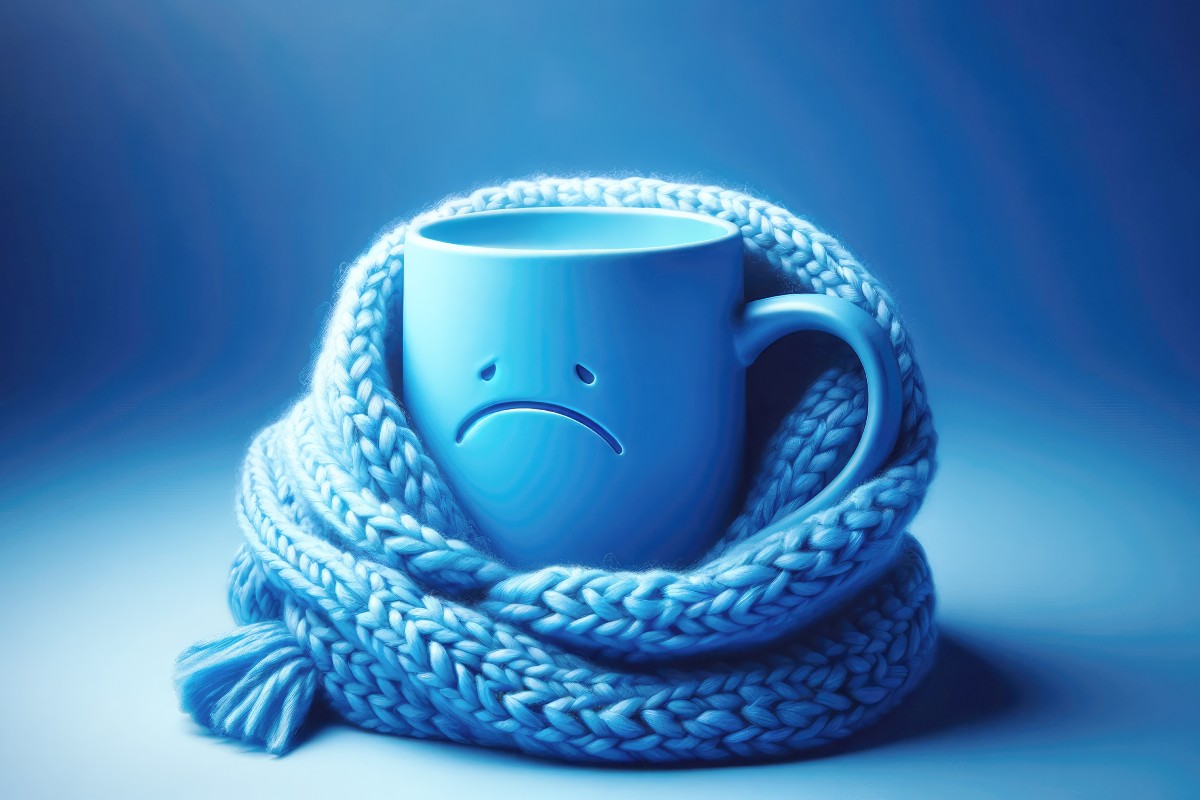
Blue Monday: How Can You Avoid the Bluest of Monday Blues?
The third Monday in January has the unenviable title as the most depressing day of the year. While the scientific validity of ‘Blue Monday’ is questionable, it’s plausible that miserable weather, dark days, anxiety about post-festivity debt, and short-lived New Year’s resolutions could exaggerate the typical back-to-work blues.
What is Blue Monday?
Blue Monday is a term used to describe what is claimed to be the most depressing day of the year. It falls on the third Monday of January and is associated with a combination of different things that can contribute to a generally low mood. These include:
- Post-holiday blues after the festive season.
- Cold, dark weather in the Northern Hemisphere.
- Financial strain following Christmas spending.
- Abandoned New Year’s resolutions.
- The general sluggishness of January.
The idea originated in 2005 as part of a marketing campaign by a travel company. A psychologist, Dr. Cliff Arnall, devised a pseudo-mathematical formula incorporating various factors to calculate the “most depressing day.” However, this formula is widely criticised by experts as unscientific and more of a publicity stunt.
While Blue Monday is not based on any solid psychological evidence, it has gained cultural traction as a day to reflect on mental health, self-care, and ways to beat the winter blues. Blue Monday has now widely become a day that's dedicated to promoting positive messages and mental health awareness.
So what can you do to prepare to beat the blues this Monday?
A single night without sleep can boost anxiety levels by 30%. For a calmer, more upbeat start to the week, here are 5 steps to protect the quality of your sleep:
-
A lengthy Sunday lie-in may feel delightful at the time, but later weekend wake-up times will shift your body clock back, which means waking up on Monday is a nasty shock to your body clock. To avoid that jetlag-type haze on Monday mornings, aim to shift your wake-up time by no more than an hour from one day to the next.
-
What are you going to do with that extra hour or two on Sunday morning? Brave the outdoors. Getting active early in the day means you start to build up a strong sleep pressure by nightfall. Regular physical activity is associated with deeper, more restorative sleep.
-
Sunday night stress? A simple step to reduce the racing mind is to mentally put the day to rest. An hour before bed, take a pen and paper, and write down everything important that you need to remember for tomorrow. If those same thoughts pop up while you’re in bed, tell yourself it’s on the page, it’s safe to let it go.
-
If worry interferes with your day or night, set aside a time each day to give your worries some serious attention. Allocating a 20 minute ‘worry time’ in your schedule can help prevent unhelpful thoughts intruding at other times. During worry time, reflect and write about your worries. When worry time comes to an end, move on.
-
Sunlight is a natural mood booster. Most electric lighting only has a fraction of the intensity of natural daylight. If Monday hits and you’re in need of an energy boost, take a walk, or move next to a window. Daylight is cheaper than an espresso, and boosts the brain’s production of serotonin, the feel good hormone.
Beat the winter blues this Blue Monday
There you have it, the top 5 tips for avoiding the bluest of blues from our resident sleep expert, Dr Sophie Bostock. If you're feeling down in the dumps, it could be time to address your mental health. Mental health and sleep are intrinsically linked, with one having a negative impact on the other and vice versa. It could also be that you're suffering from Seasonal Affective Disorder and just don't know it yet. Or it could even be as simple as mounting worries from general day to day life.
Whatever it is that's got you feeling blue, don't let Blue Monday drag you further into the depths of despair. Get in touch with your GP, speak to a friend or family member, and take those vital steps needed to get you on the road to feeling a little more like you. And if sleep is a struggle, try our Sleep Calm & Carry On sleep program. With practical advice and top tips from Dr Sophie, you should soon be back on track where your sleep is concerned. Plus, once you're getting a consistently better night's sleep, everything else should seem easier to deal with. Happy Blue Monday everyone, time to start turning negatives into positives!

Dr Sophie Bostock - We worked with Dr Sophie Bostock from 1st December 2019 to 31st July 2025.
Sophie brings a wealth of expertise to the role having spent the last six years researching and championing the importance of sleep science in NHS and corporate settings. Sophie was responsible for improving access to the award-winning digital sleep improvement programme, Sleepio, as an NHS Innovation Accelerator Fellow. She has delivered hundreds of talks, including for TEDx and Talks@Google, and regularly features as a media sleep expert.